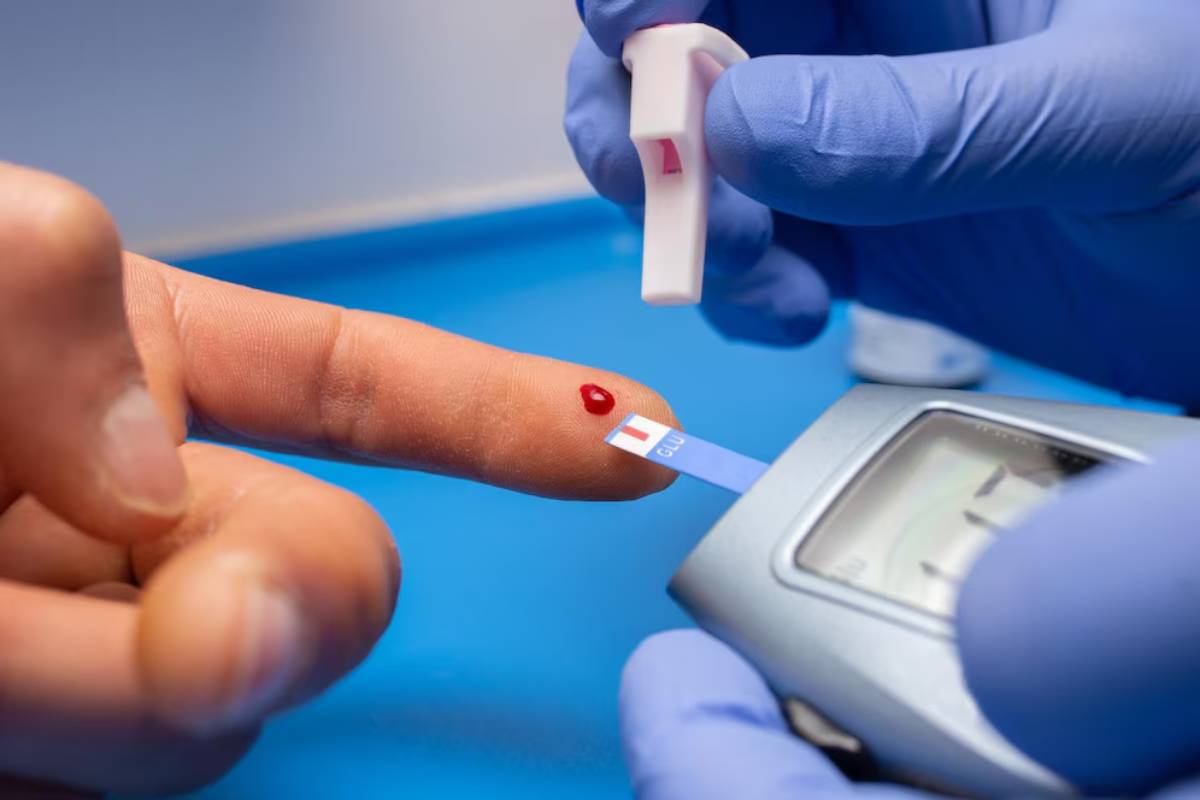
Hormonal Health Tips for Men and Women: Achieve Balance Naturally
Hormones, the body’s articulate messengers, incredibly influence our lives. These wonderful chemicals influence our mood, metabolism, sleep, libido, and long-term health. Life is easy when hormones dance gracefully. Every aspect of life is impacted when they strike a bad note.
Hormonal harmony is a universal ballet, not just a problem for women or men. Important hormones include insulin, cortisol, testosterone, and estrogen. They are prone to losing their equilibrium. You may experience fatigue when your hormones are not in balance. You may feel mood swings, have trouble sleeping, or gain weight. But don’t worry—the bright side awaits! You can nurture your hormonal health with natural, sustainable lifestyle choices. Your body balance is within your grasp, ready to bloom and thrive!
This guide is your reliable friend. It gives simple tips for women’s wellness and men’s health. It’s designed to help keep your hormones thriving and your life in check.
Understanding Hormonal Health
Hormones come from glands in the endocrine system. These include the pituitary, thyroid, adrenals, pancreas, and reproductive organs. These chemical signals regulate:
- Energy and metabolism
- Reproductive cycles and fertility
- Mood and mental health
- Sleep-wake cycles
- Appetite and digestion
- Muscle mass and bone density
Testosterone plays a key role in energy, libido, and physical performance in men. In women, estrogen and progesterone regulate menstrual cycles and reproductive health. Cortisol, insulin, and thyroid hormones impact everyone. They react strongly to stress and lifestyle choices.
1. Eat for Endocrine Support
What you eat plays a major role in hormonal balance. Both men and women gain from whole foods, which help keep blood sugar steady, support detoxing, and ensure nutrients are available.
Nourishing Foods for Harmonizing Hormones:
- Enjoy healthy fats such as creamy avocado, bright olive oil, crunchy nuts, and tasty fatty fish. They’re the secret sauce for sex hormone production.
- Embrace fibre-rich heroes. leafy greens, hearty lentils, and wholesome oats. They balance estrogen and sweep away excess hormones like tidy housekeepers.
- Pump up your protein! Eggs, beans, fish, and tender poultry help keep insulin levels and hormone production steady.
- Meet the heroes of estrogen metabolism—cruciferous veggies like strong broccoli and bright cauliflower.
- Discover fermented delights like tangy yoghurt, zesty kimchi, and crunchy sauerkraut. They foster gut health, the cornerstone of hormone harmony.
Steer clear of highly processed foods, refined sugars, excessive caffeine, and alcohol. These mischief-makers throw hormones into chaos.

2. Balance Blood Sugar
Frequent highs and lows in blood sugar can affect insulin, cortisol, and other hormones.
Blood Sugar Tips:
- Don’t skip meals—especially breakfast.
- Pair carbohydrates with protein or healthy fat.
- Choose complex carbs over simple sugars.
- Limit sugary beverages and snacks.
Stable blood sugar = fewer energy crashes, less irritability, and better hormone function for both men and women.
3. Sleep: The Body’s Hormone Reset Button
Sleep helps the body reset hormone levels, including cortisol, melatonin, growth hormone, and insulin. Chronic sleep deprivation leads to hormonal chaos.
Sleep Tips for Hormonal Health:
- Stick to a consistent bedtime and wake-up time—even on weekends.
- Avoid screens 1–2 hours before bed to support melatonin production.
- Create a calming wind-down routine (think dim lights, herbal tea, light stretching).
- Ensure your sleep environment is calm, quiet, and dark.
Aim for 7–9 hours of quality sleep each night.

4. Exercise Smart (Not Just Hard)
Physical activity regulates hormones like insulin, testosterone, and estrogen. Overtraining or intense workouts can increase cortisol. This may cause hormonal imbalances.
Best Exercise Styles for Hormone Health:
- Strength training – supports testosterone, growth hormone, and metabolism.
- Low-impact cardio – like walking, swimming, or cycling improves insulin sensitivity.
- Yoga and pilates – reduce cortisol and support nervous system balance.
- HIIT – in moderation, can optimise fat-burning hormones.
Pro Tip for Women: Choose gentler movements in the luteal phase (the second half of your cycle). This helps avoid excess cortisol and fatigue.
5. Manage Stress to Lower Cortisol
Cortisol—the stress hormone—has a ripple effect on every other hormone. Chronic stress contributes to estrogen dominance in women and testosterone suppression in men.
Stress Management Techniques:
- Breathwork (like box breathing or the 4-7-8 method)
- Mindfulness meditation
- Spending time in nature
- Journaling or creative outlets
- Unplugging from screens regularly
Just 10 to 15 minutes a day for stress relief can reduce cortisol. This also helps improve hormonal health.

6. Support Detox Pathways
The liver helps break down and remove extra hormones, especially estrogen. Constipation and liver congestion can lead to hormonal buildup and symptoms.
Detox Support Tips:
- Drink plenty of water daily (half your body weight in ounces is a good target).
- Eat fibre-rich foods daily.
- Add liver-supportive foods like dandelion greens, beets, garlic, and turmeric.
- Reduce exposure to endocrine disruptors (plastics, synthetic fragrances, harsh cleaners).
7. Supplements to Consider (With Guidance)
Diet and lifestyle are key for hormonal balance, but some supplements can help.
Commonly Recommended:
- Magnesium – for mood, sleep, and PMS support
- Vitamin D – necessary for testosterone and estrogen regulation
- Omega-3 fatty acids – anti-inflammatory and hormone supportive
- Ashwagandha – adaptogen that lowers cortisol
- Zinc – especially for men’s testosterone production
Always consult with a healthcare professional before adding supplements to your routine.
Women’s Wellness Focus
Women experience fluctuating hormone levels throughout the month and over different life stages. PMS, perimenopause, and menopause are all connected to estrogen and progesterone shifts.
Women’s Wellness Tips:
- Track your menstrual cycle to understand hormonal patterns.
- Use seed cycling to support hormonal phases (e.g., flax and pumpkin in the follicular phase; sesame and sunflower in the luteal phase).
- Support progesterone with B6-rich foods like bananas and chickpeas.
- Reduce xenoestrogens from plastics and synthetic products to prevent estrogen dominance.
Men’s Health Tips for Hormonal Strength
Testosterone is the key hormone for energy, libido, strength, and confidence for men. It naturally declines with age, but lifestyle habits can slow this process.
Men’s Hormonal Health Tips:
- Strength train regularly—resistance workouts boost testosterone.
- Get adequate zinc and vitamin D.
- Maintain a healthy weight—excess fat can convert testosterone to estrogen.
- Minimise alcohol and processed food intake.
- Prioritise restful sleep—testosterone production peaks during deep sleep.
Signs of Hormonal Imbalance to Watch For
In Women:
- Irregular periods or heavy cramping
- Mood swings, anxiety, or depression
- Low libido
- Weight gain, especially around the belly
- Fatigue or insomnia
In Men:
- Decreased libido or erectile issues
- Loss of muscle mass
- Fatigue or brain fog
- Increased body fat
- Low motivation or mood changes
If you experience persistent symptoms, speak with a healthcare provider or endocrinologist. Hormone testing (saliva, blood, or urine) can pinpoint imbalances.
Final Thoughts: A Holistic Path to Hormonal Balance
Hormonal health is deeply connected to lifestyle—how you eat, move, rest, and respond to stress. To improve your health, energy, or fertility, make small and steady changes to manage cycle changes. These can lead to significant results.
Balancing hormones isn’t about perfection. It’s about finding harmony in your body and mind. With the proper support, both women’s wellness and men’s health can thrive throughout every phase of life.